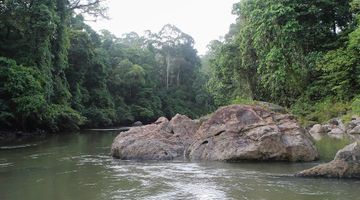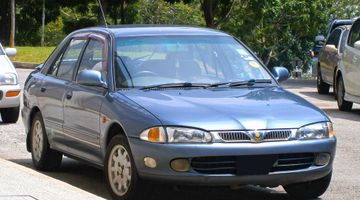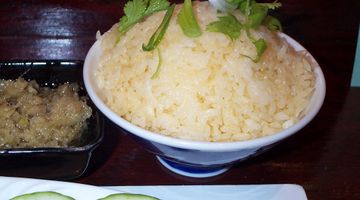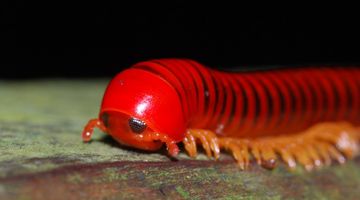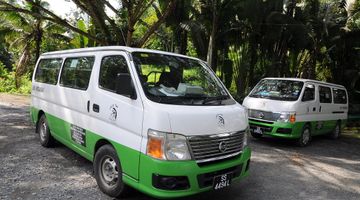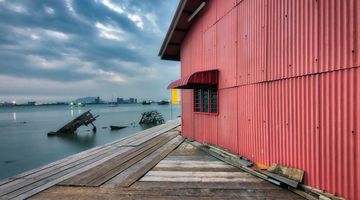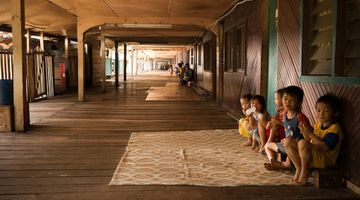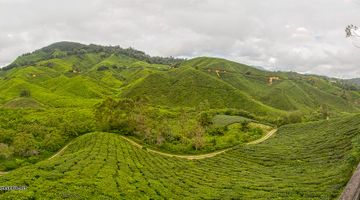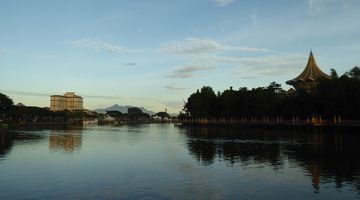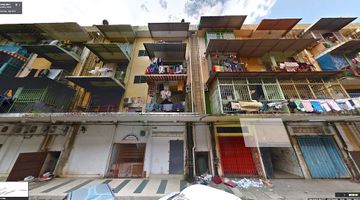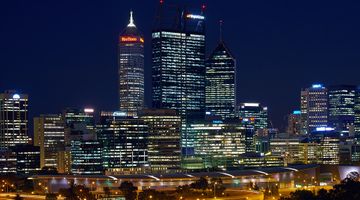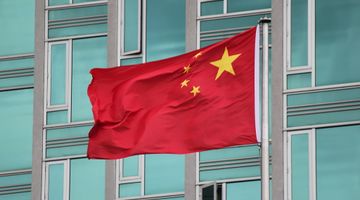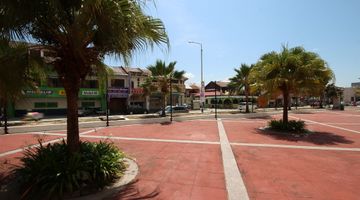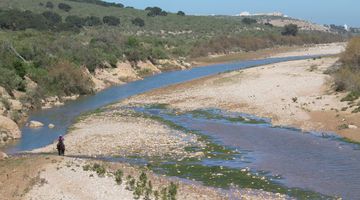What vaccines are required for travel to Malaysia?
Malaysia is one of South East Asia’s most developed nations with Kuala Lumpur, the most popular tourist destination, being a modern and progressive city. But, thriving bacteria and germs tourists haven’t been exposed to can be a big problem. There are a few vaccinations needed for Malaysia recommended by the World Health Organisation (WHO) and malaria, dengue and other tropical diseases are endemic.
WHO recommendation on vaccination for Malaysia
According to the WHO, most travellers should get immunised against Hepatitis A and B, Typhoid, Cholera, Japanese Encephalitis and protect against malaria and dengue. Here are some risk factors, sources and action to take against the common diseases and necessary vaccinations needed for Malaysia. This information is a guideline and the majority of locals, tourists and expats are safe without injections. Always consult a medical professional for up to date medical advice.
Hepatitis A
Vaccinations against Hepatitis A come highly recommended for visitors planning a trip of any duration to Malaysia. The principal source of contraction is through contaminated food or water. Regardless of where you’re staying from Kuala Lumpur to rural kampongs (villages), there’s always a risk of this disease. Transmission is when the stool of an infected person makes contact with food or water sources. Not all people wash their hands when they prepare food in Malaysia, especially the vendors. Raw sewage leaking into rivers may contaminate some water sources too. All visitors should consider having a vaccination for Hepatitis A.
Hepatitis B
Hepatitis B is more predictable than A, and only some travellers should consider this immunisation. The infection spreads by mixing body fluids contaminated with the virus, which can be through needles, sexual contact and blood infusions.
Some tourists like to get a tattoo when they visit a new country, especially if it’s much cheaper than back at home. But needles may be reused on multiple customers and inadequately sterilised. Almost all needles in the hospitals are disposable significantly reducing the risk needle sharing. This may not happen all the time in very rural hospitals with under-qualified doctors and nurses. Visitors should get a vaccination if they want to get a tattoo or plan to spend extended periods in rural areas.
Typhoid
Untreated typhoid can be deadly. Although the incidence is low, it still exists in some parts of the country. Transmission, like Hepatitis A, comes from contaminated faecal or urine matter making contact with food or water. Foods such as undercook shellfish and raw vegetables are prime suspects in the spread of Typhoid. The first live in the sea and may swim in sewage-contaminated waters especially. Fresh vegetables have exposure to the elements, and it’s not uncommon for people to relieve themselves outdoors in less developed places. Consider getting vaccinated if you plan to visit the smaller cities and want to try different delicacies.
Cholera
There’s a risk of Cholera from drinking contaminated water in parts of rural Malaysia. The vast majority of tourists won’t visit the regions where the disease is endemic. However, it may be a necessary precaution for people planning to get far off the beaten path. If you do contract the disease, you’ll develop severe diarrhoea and are at risk of life-threatening dehydration. Cholera is very rare, consult your doctor for the latest health information for travellers visiting Malaysia.
Japanese Encephalitis
Mosquitoes, living in wet and swampy areas, spread Japanese Encephalitis. The risk is very low throughout most of Malaysia, but the threat still exists. Flooded rice paddies in rural areas in both West and East Malaysia are primary spots for the virus-carrying insects. It’s recommended to get a vaccination if you plan to spend more than a month in the cities and for a longer than a few days in rural Malaysia. You can also protect yourself from bites by covering your arms and legs in the evening and using repellent.
Is there malaria in Malaysia?
The current status of malaria in Malaysia is mostly low to non-existent unless you plan to go into Borneo’s rainforest or far away from towns and cities in West Malaysia such as parts of Pahang. So, yes there is malaria in Malaysia. But it’s scarce, and you’ll hardly ever hear about people getting the disease.
Some people who head deep into the rainforests as part of an expedition or for an extended period for research purposes should get medication. Places such as Taman Negara and Danum Valley are potential malaria sites. If you don't intend to spend a long time inside the jungle, you might not need malaria vaccinations. But remember it can take several hours or days to get to proper medical help if you do fall sick.
You need to take traditional anti-malarial medicine before, during and after the trip. Most who use medication experience adverse effects and often don’t complete their course. Locals don’t take medication and rarely get the disease. As with all mosquito-borne diseases, the best protection is to reduce the risk of bites by staying indoors after dark, covering arms and legs, using repellents and anti-mosquito coils. Malaria vaccinations are available, but they don’t have high success rates. Always consult a medical professional.
Other mosquito-borne diseases and how to protect yourself
Mosquitoes are the world’s deadliest living organisms killing more than one million people each year. The insect bites infected animals. Viruses and parasites enter in their blood meal. They get transmitted when the infected mosquito bites another person.
Apart from malaria and Japanese encephalitis, dengue fever is a common disease in Malaysia like the rest of South East Asia. At the time of writing, the Dengue vaccine is being introduced nationwide but it is not yet common and in case of dengue doctors can only treat symptoms.
Dengue fever is the most prevalent disease in Malaysia. Some authorities have regular fogging sessions spraying insecticide into the dense foliage to the kill the mosquitoes. Shah Alam and parts of Selangor tend to have endemic dengue. Local governments conduct routine house checks in residential areas fining homeowners up to RM500 ($123) if their property is a prime breeding ground, especially in areas with poor cleanliness and stagnant water.
Other mosquito-borne diseases including Zika and Chikungunya are present. Both are extremely uncommon, but you should take measures to protect yourself from getting bitten if you’re in areas that are conducive to their habitats.
Healthcare in Malaysia and where to get medical help
A large number of international and government-run hospitals are in all major cities in Malaysia, especially Kuala Lumpur. International hospitals employ highly qualified doctors and provide exceptional levels of care and service. Tourists will often visit one of the following: Columbia Asia, Gleneagles and Assunta. The main advantage is the fast and high-quality treatment. However, expect walk-in fees to be costly.
Government hospitals, on the other hand, are more affordable but tend to have long waiting times. Foreigners familiar with the high level of service and care in their home country may be disappointed with local hospitals. If you plan to visit rural or kampong areas, healthcare centres may not open 24/7 and rarely provide treatment at the standard you need.
The best way to protect yourself in case of an emergency is to buy comprehensive travel insurance that covers all medical bills. If you’re in a rural area or deep in the jungle, you may need rapid medical attention, which could include costly extraction methods. Always get something with good coverage just in case something does go wrong. Your health is critical and knowing you have protection in a medical emergency is a must.
Tips for staying healthy in Malaysia
Malaysia is a tropical country and comes with a whole range of diseases, parasites and dangers you may not encounter back at home. Here are some of the essential things to do to stay healthy on your trip.
-
Consult your doctor
As mentioned several times above, always consult your doctor for information on the best travel vaccines and advice for Malaysia. Medical professionals will tell you the necessary immunisations and suggest ones based on where you plan to visit. -
Travel Insurance
Good coverage should protect against medical emergencies at international hospitals, theft or loss of property and travel disruptions. -
Buy bottled water
Tap water isn’t drinkable in Malaysia. Always buy bottled water from the shop and refill from a cooler or a filtration system. If you’re at home, boiling water kills the bacteria making it safe to drink. -
Be Smart when eating out
Always exercise caution when choosing a restaurant. Most of the time, food and drink are safe to eat. But, cleanliness and hygiene are significant problems in Malaysia. Some restaurants close for their lack of sanitation and then reopen again after a major cleaning or under a different name. This is especially a problem when you consider how diseases like Hepatitis A spread by coming into contact with faecal matter. Just be aware that this happens. The best thing is to ask locals to recommend a place to eat. -
Food uses MSG
Restaurants in Malaysia use MSG for cooking. If you have an allergy, you may have a problem. Learn a few phrases to ask the restaurant before you order.
Medications to pack:
• Anti-diarrheal: lopremade (also known as Imodium)
• Painkillers: Ibuprofen and paracetamol
• Travel sickness medicine
• Hand sanitisers. Sanitation can be a problem and tissues aren’t always available. You may need wet wipes after sweating for hours, to clean utensils in restaurants and wipe the not-so-clean things you need to handle.
• Anti-bacterial hand wash. Hygiene in Malaysia isn’t the best. Toilets often have a bucket and pale without tissues. People clean themselves with their hands and water. Toilet door handles may be contaminated with other people’s faecal matter.
• Sunscreen. UV rays from the sun are always at extreme levels, and you’ll burn after exposure for more than a few minutes, even if it’s cloudy. Buying sunscreen in Malaysia will often be more expensive than in your home country.
• Plasters. If you cut yourself, the open wound can easily get infected in the hot and humid climate.
• Talcum powder. Expect to sweat if you spend extended periods of time outside. Rashes and prickly heat are everyday occurrences. Talcum powder can provide relief.
You can buy most of the medicines over the counter at most pharmacies in Malaysia. However, it’s advisable to bring some from home before you travel; Pharmacies may not be open when you need them the most. If you have a particular medical condition and need prescription drugs, always bring from home. You’re unlikely to get access to the medicine without a Doctor’s note. It’s also worth mentioning rural pharmacies rarely have more than a few common drug in stock.
Conclusion
If you plan to visit Malaysia, there are a few vaccinations you should probably get. However, always ask a qualified medical professional. And when you arrive, make sure you take measures to protect yourself against falling sick. Health risks exist in Malaysia, but they’re not as common as other parts of the world.


